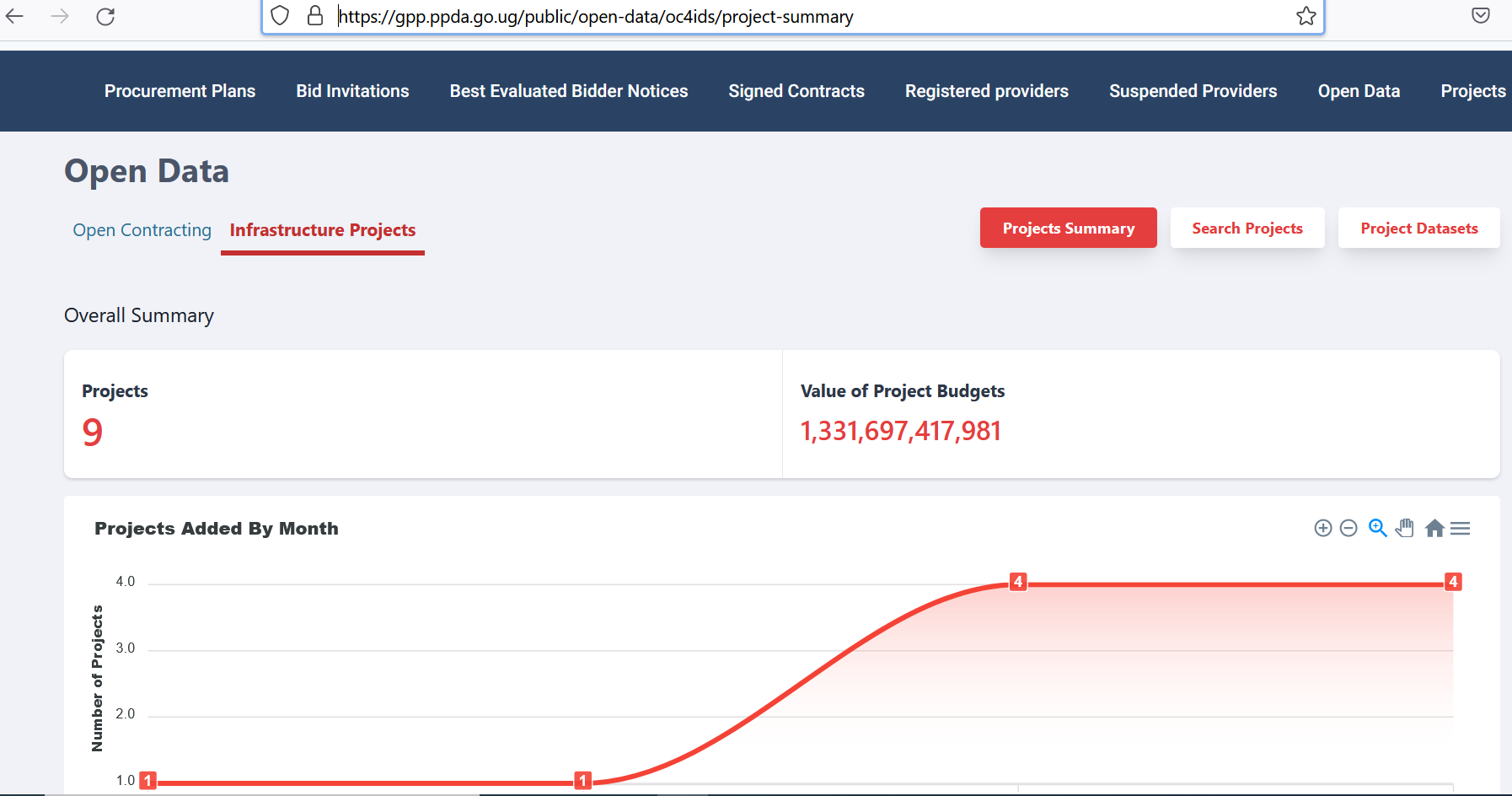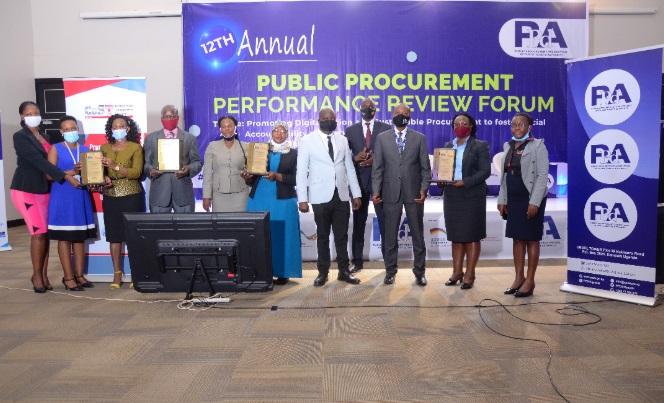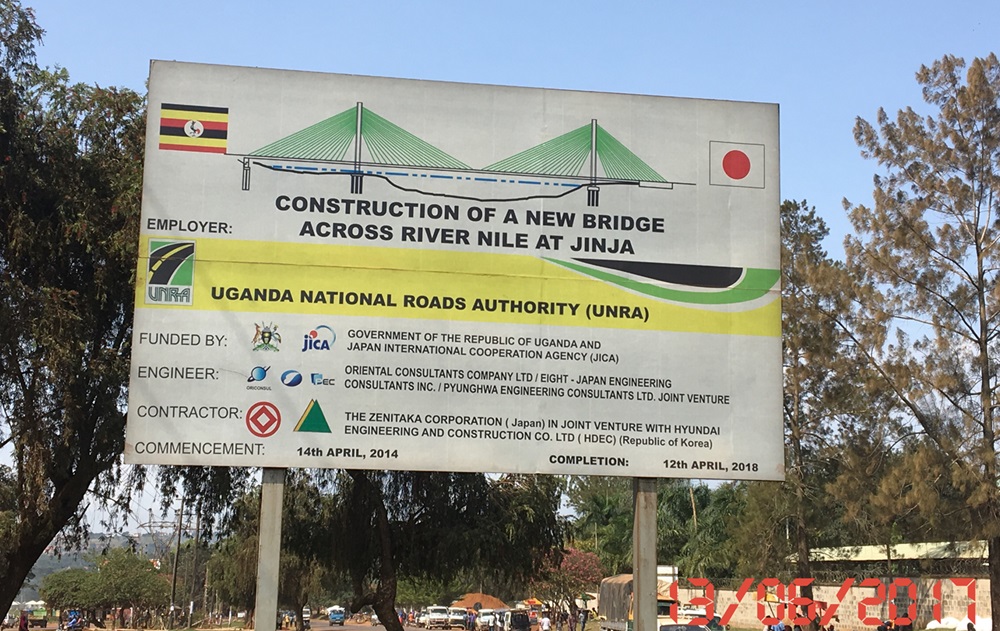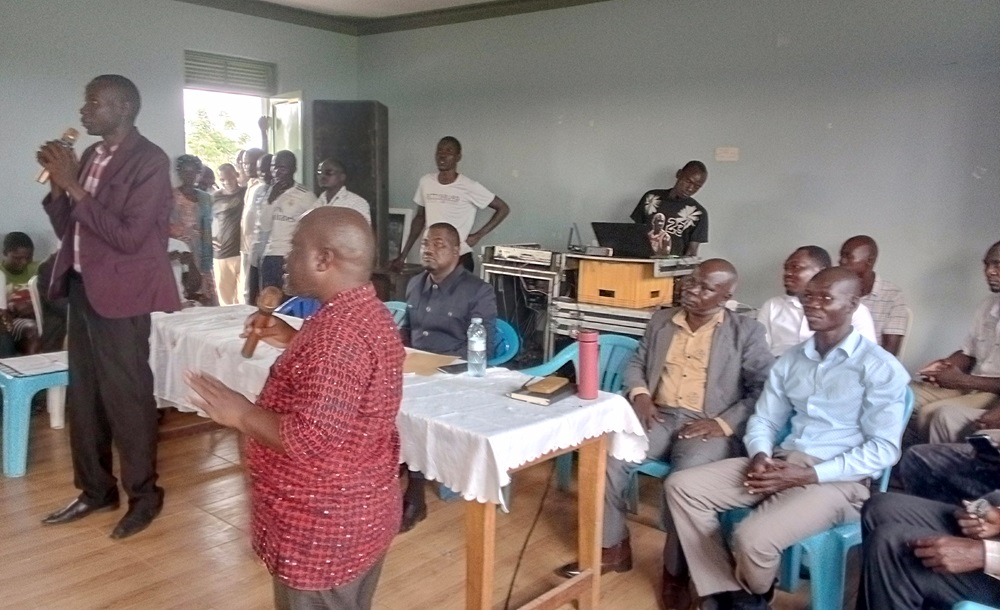
In October 2021, the Government of Uganda, through PPDA aligned the Government Procurement Portal to the Open Contracting for Infrastructure Data Standard (OC4IDS) following a series of lobbying and awareness raising engagements, five years after the launch of the Scoping Study. The portal was realigned to allow entities to report on newly aligned indicators under three phases; Indicators already captured on the portal, New indicators to be added to the portal, and Discontinued indicators. Although, the portal will be phased out in the coming financial years, data published through this portal will be migrated onto the new E-portal the E-GP, therefore, mainstreaming the standard within this portal facilitates future disclosure processes.
Disclosure is one of the four core features of CoST the Infrastructure Transparency Initiative, the others being multi-stakeholder working, assurance and social accountability. It is the publication of data from publicly financed infrastructure projects by procuring entities. The CoST disclosure process sees that data such as the purpose, scope, costs and implementation of infrastructure projects is open, accessible and more readily available to the public. Data or items is disclosed across the infrastructure project cycle including key stages; identification, preparation, completion, procurement and implementation proactively and reactively. Majorly in accordance with the CoST Infrastructure Data Standard (CoST IDS) and the Open Contracting for Infrastructure Data Standard (OC4IDS). The CoST IDS requires procuring entities to disclose 40 data points or ‘items’ across key stages of the infrastructure project cycle. The OC4IDS builds on the CoST IDS and combines contract-level disclosure based on the Open Contracting Data Standard and project-level disclosure based on the CoST IDS. It standardises the approach to disclosing data through the use of online platforms, encouraging data centralisation and making it available in ‘real time’. Globally CoST members interventions on disclosure are guided by a strong framework including a Disclosure Manual and a Disclosure Guidance Note which explain how the disclosure process evolves within the legal, policy and institutional framework of the country and its institutions. In this blog, we see how the disclosure process has evolved in Uganda moving from twelve (12) data points to full disclosure within the disclosure frameworks since 2017.
The Government Procurement Portal (GPP)
The new Government Procurement Portal was unveiled in March 2019. The platform is a one-stop-shop for all Government procurement information stipulated in the PPDA Act. The portal allows PDEs to showcase their procurement and allow all stakeholders easy access to Government procurement information. In September 2020, the Government of Uganda and, through the Public Procurement and Disposal of Public Assets Authority (PPDA,) signed a Memorandum of Understanding with the African Infrastructure Country Diagnostics Initiative/CoST Association to promote Open Contracting for Infrastructure in Uganda. The partnership is premised on the government’s commitment to enhance Government procurement transparency and accountability as stipulated in the National Development Plan III and the Open Government Partnership National Action Plan.
The GPP serves a wide range of stakeholders including PDEs, citizens, businesses, and the academia. Identifying infrastructure projects and sectors has been a challenge to all stakeholders using the portal. Therefore, the alignment enabled upgrade of the portal by adding missing data fields for project details about works procurements. The alignment addressed four key objectives including; availing procurement data in the OC4IDS format, providing a data use guide for all PDEs, make available to the public open links for OC4IDS data and providing training demonstrations on the updated portal and eventually, enabling PDEs to publish user friendly data.
The GPP alignment to OC4IDS is approved by Government
To address the challenge of disclosure, CoST Uganda initiated a series of advocacy engagements with key government institutions such as PPDA, Ministry of Finance Planning and Economic Development, the Champion Ministry of Works and Transport, on the need to increase disclosure as per international standards, such as the OC4IDS. Series of meetings and trainings were held with the authorities and an approval to include the standard was granted. Government noted that, the standard is within the legal framework and the data it requires does not compromise policy, national security and the health concerns of individuals among others, in other words, does not fall under protected information, therefore, its alignment into procurement portals was granted.
These engagements brought into realization Gen. Edward Katumba Wamala the Minister of Works and Transport and CoST Uganda Champion’s commitment remarks at the launch of the 3rd Assurance report in January 2020, “The Ministry of Works and Transport will seek to build a strong foundation for sustainable benefits from CoST by promoting the new Open Contracting for Infrastructure Data Standard (OC4IDS)” and during the launch of the 4th Assurance Process in February 2021 “I am glad that, in the last one year (2020), Government through PPDA has officially adopted the standard and is awaiting its full alignment to the Electronic Government Portal and the Government Procurement Portal. My Ministry will follow up implementation of this commitment, to promote infrastructure procurement transparency in the next two financial years” Gen. Edward Katumba Wamala. Implementation of this commitment has been to the expectation.
In principle, Government committed to align the Government Procurement Portal (GPP) and committed to consider including missing data points into the Electronic Government Portal (EGP) in June 2020. Implementation of this commitment would later be discussed on 20th April 2021. Government has taken strides to address disclosure, especially contract data, and indeed at the 12th East African Procurement Forum, all East African Community member states resolved to adopt the Open Contracting Data Standard to publish procurement information to enhance citizen participation in public contracting. Uganda’s GPP was aligned to the OCDS, which enabled disclosure of contract information of up to 35/82 data points in the OC4IDS, but, does not comply with the Infrastructure Data Standard, and thus, there was no project information disclosed. This affected the quality of the analysis being done by stakeholders to ably inform decision making. To enable the portal’s compliance with disclosure of contract and project information, an alignment to include missing data points was recommended by CoST Uganda.
Following this consensus, CoST Uganda was tasked to identify resources to facilitate the alignment process, the decision to align the portal was made in the middle of the financial year, making implementation using Government resources complex, the most effective means to make it easier to implement was to identify external resources, and thus, the CoST Initiative was tasked to identify possible resources. As part of its grant from CoST International in 2021, CoST Uganda working closely with PPDA’s Performance Monitoring Unit, identified a resource person who would work closely with the PPDA, and AFIC Team (on behalf of CoST Uganda) to align the portal to the OC4IDS. The process included incorporating missing data points, and creating new data fields in the OC4IDS. Entities would then be required to complete the additional data fields as part of their compliance mechanism with PPDA guideline. The portal has a public platform where citizens can access project and contract information in the CoST standard.
Training of entities on the newly added OC4IDS data points
Following the alignment of the GPP to the OC4IDS, a series of online pieces of trainings for all PDEs disclosing data through the GPP were organized from January – February 2022. The online training sessions were open and planned for a total of 146 entities. The five training sessions were held on 25th, 26th, 27th, 28th January and 2nd February 2022. Following the Government Procurement Portal (GPP) alignment to the Open Contracting for Infrastructure Data Standard (OC4IDS). A cross-section of entity officials registered on the portal was identified for training/orientation. The officials trained included those mandated to upload data on the portal. Following the five trainings, to prove ongoing capacity enhancement, PPDA arranged physical training when officials call in and or come to submit their PPDA compliance monthly reports. Owing to human resource constraints including staff turnover, and some entities not having officials responsible for uploading data onto the portal by the time of the trainings, only 40 entities covering 93 officials from these entities successfully attended the trainings organized in five sessions. PPDA however, committed to continue engaging the 122 entities through formal compliance letters, and offered physical trainings to officials during their monthly appearances at the Authority offices to submit compliance reports.
From the entities trained, the following were key takeaways;
- We observed that some entities did not have projects for publication at the time of the training, which partly affected their levels of disclosure. This meant fewer projects would be published in the standard following the training; as entities plan and enter into the new financial year, more projects will be published.
- Entity officials appreciated that disclosure is still low; they have not been documenting project data, a significant reason as to why uploading this data into the portal will be delayed/constrained. But, the training opened their eyes to proper documentation and archiving of contract and project data. This meant that linking contracts and projects would be quickly done.
- Officials also raised concerns regarding the migration of data from the GPP to the E-GP. Officials expressed concerns on whether they would have data entered into the GPP stored as the procurement functions transit to E-GP. Indeed, there were affirmative responses from PPDA that data would be stored and entities would access it once all entities migrated to the e-GP.
- PPDA committed to providing ongoing one-on-one training to officials following the training. Indeed, several officials, including those who missed the training, have since been introduced to the portal and are working towards disclosing data.
- PPDA is committed to cleaning up the data and ensuring that all projects uploaded into the platform are published.
- The training provided a platform to raise awareness of the GPP, OC4IDS and the CoST work
- PPDA was able to provide guidance and address concerns regarding the general functionality of the portal beyond the newly added OC4IDS data fields. The issues raised were migration to EGP, blacking out of the portal, and retooling.
- The training also offered an opportunity to engage with Government officials on the utility of disclosing Government procurement information and the benefits that can be accrued.
Although, a number of entities are undergoing training and are uploading data onto the portal, uncertainties remain on the sustainability of the portal and the ability of the data to be published/accessed once the GPP migrates into EGP. Assurances to entities to upload data onto the GPP ought to be made by Government to ensure that there is enough data on current/ongoing procurements/projects into the portal. There is a need for the government to provide a feedback mechanism on the publishers to enhance transparency and accountability. Entity officials should be educated on the existing legal and policy obligations to publish procurement information. PPDA should consider holding more awareness-raising sessions on the Government Procurement Portal for entities not reached by the training. The data cleaning process should be enhanced to ensure that all data published is accurate and up-to-date.
Lessons learned
- Training and continuous engagement of public officials can lead to action. Realization of the alignment of the GPP to the OC4IDS included series of engagements and capacity building sessions with the procurement authority, the entities and ministry of finance for a period of over four years.
- Capacity building goes beyond offering training sessions to sharing of materials, provision of guidelines, a help desk, internet data support, key results of the training, and follow up with public officials and other stakeholders. Following the training, emails, calls, whatsapp correspondences were made to check in with officials who had challenges, or unanswered questions, and possible challenges faced during data entry. Most of the concerns raised would be directed to PPDA for action. PPDA also offered routine assistance to the entity officials.
The alignment process experienced challenges including; Low turn up of entities for the training despite the numerous calls and emails. The slow pace of publication of projects following the training owing to no projects for uploading at the time of the movement across the entities. Entities still indicated capacity challenges following the training, although PPDA has provided one-on-one activities to all officials who indicated such challenges. In conclusion, the training was successful in terms of achieving its objectives. The majority of participants had a good understanding of what was being trained and were able to put into practice what they had learnt. We hope that this will lead to more Government entities disclosing data on the Government Procurement Portal following the Open Contracting for Infrastructure Data Standard.



